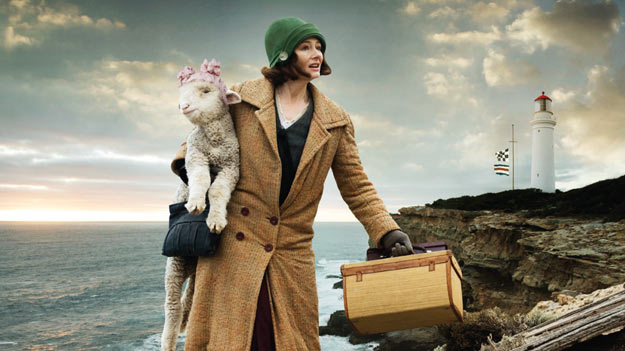For anyone expecting the indigenous cinema of Australia to still revolve around post apocalyptic resource battles between roving bands of homicidal punks or bawdy comedies concerning working class types being transported from the shimmering outback to a modern urban milieu – with hilarious consequences of course – then a visit to the Barbican’s London Australian Film festival over the weekend would have shattered this redundant orthodoxy. Now in its 17th successful incarnation, the festival screened an unintentional double bill of movies from two female directors, two talents whom have crafted a historical drama and one contemporary drama respectively, where the ancient antipodean landscape provides an atmospheric background to the human theatrics that unfurl in the foreground.
The first of this duo is the period drama South Solitary in which Miranda Otto stars as Meredith Baxter, an unmarried young woman whom is accompanying her uncle to a remote island in the late 1930’s after the incumbent lighthouse keeper has committed suicide, presumably due to some strain of Australian cabin fever As a representative of the Maritime Safety Authority her officious uncle Mr. Wadsworth (played by Miranda’s real life father Barry Otto) takes his responsibilities very seriously and insists on an overzealous return to professionalism and rigid protocol from both the remaining lighthouse men Harry (Rohan Nichol) and Jack (Marton Csokas), a veteran of the trenches with an almost pathological shyness. Events conspire to leave Meredith and Jack abandoned on the island as an almighty storm lurks on the horizon, pooling their efforts to keep the lighthouse operational in the face of ferocious weather they begin to develop an unexpected friendship. This amiable film is not exactly destined to haunt the mind after a viewing but for the most part it’s an engaging, charming little piece that doesn’t outstay its welcome. Otto plays Meredith as a rather naïve but resourceful young woman whose quest for affection has led her through some unfortunate experiences, the dimensions and results of which are strategically uncovered as the film progresses. Shirley Barrett directs with a deftly invisible touch, letting the drama and light comedy spring naturally from the performances and their characterizations. It’s an almost superficially gentle and placid piece that seems apt for a rain-sodden Sunday afternoon.
Directed by Julie Bertucelli, The Tree is a much more intense film with an atypically discreet performance from the always interesting Charlotte Gainsbourg. Dawn O’Neil is a Queensland homemaker to four children (two teenagers, one child and one toddler) whose life is shattered when her husband Peter expires from a tragic and thoroughly unexpected heart attack. Grief stricken and confused Dawn tries her best to keep the family together as the film’s scope expands to encompass the reactions and grieving of her four children, with particular emphasis on her eleven year old daughter Simone, who comes to believe that her father’s spirit resides in the foundations of the venerable and octopus-like fig tree that stands adjacent to the family home. As Dawn’s faltering attempts to put her and her family’s life back together – including striking up a relationship with her plumber boss George Elrick (Marton Csokas again, he’s obviously got a busy agent) – begin to bear fruit, some suspiciously anthropomorphic coincidences occur, almost as if the family topiary objects to the newly kindled romance in her life. This arresting drama performs that rarest of tasks, getting genuine and affecting performances out of adolescents and kids that don’t want you to secretly wish that the precious little treasures are washed away in a flash-flood. Morganna Davis in particular is outstanding as the stubborn Simone, coupled with some evocative photography that captures the ancient wilderness of Queensland. This is a quietly beautiful tale of starting again and moving on, with a reflective and pensive finale that lingers in the memory.
John McEntee
Visit the official website for the festival



